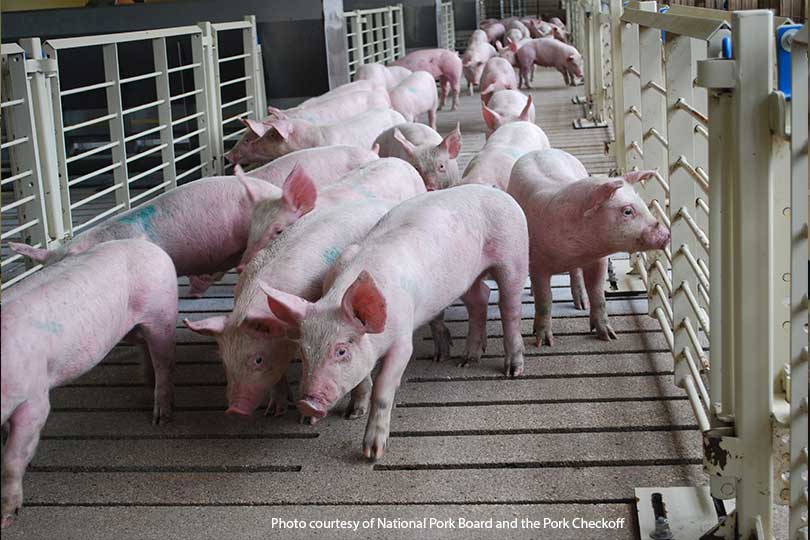By Shelby Shank
Field Editor
Scientists have found a gene in pig DNA that is needed by African swine fever (ASF) to cause infection.
This discovery could help researchers better understand how to combat the deadly disease.
ASF acts quickly and causes widespread illness and death in pigs, resulting in substantial economic losses for the pork industry.
The deadly virus has killed more than 200 pigs worldwide. ASF has become a significant threat across Asia and has the potential to cause major outbreaks in Europe and the United States.
A collaborative effort led by the Friedrich-Loeffler Institute and Roslin Institute found a gene within a pig’s immune system essential for replication of ASF. This discovery increases the possibility of modifying the gene through gene editing to develop ASF-resistant pigs.
” Our study identifies target genes for editing to develop pigs resistant to African swine fever,” said Dr Finn Grey, Roslin Institute. “Although more work is required, this finding represents an important first step towards the generation of ASF-resistant pigs.”
Researchers examined a collection of pig cells, each lacking a specific gene compared to the others, and observed how the cells responded to the ASF virus.
Analysis pointed to a suite of genes responsible for producing proteins associated with the immune response to infections. This is known as the MHC-II complex and enables the virus to take place.
The team of researchers determined a single protein in the MHC-II complex, known as SLA-DM, is essential for replication of the ASF virus in cells.
“The collaboration with the Roslin Institute enabled us to use a CRISPR/Cas9-based gene knockout library to identify the cellular MHC II protein SLA-DM as a crucial factor in ASFv infection,” said Dr. Katrin Pannhorst with theFriedrich-Loeffler-Institute. “This exciting finding not only improves our understanding of the biology of ASFV but may also allow the development of new control measures.”
There is currently no vaccine or treatment available for ASF, but a vaccine is nearing approval in Vietnam. This research would offer an additional solution for managing the infection in pigs.


Leave A Comment